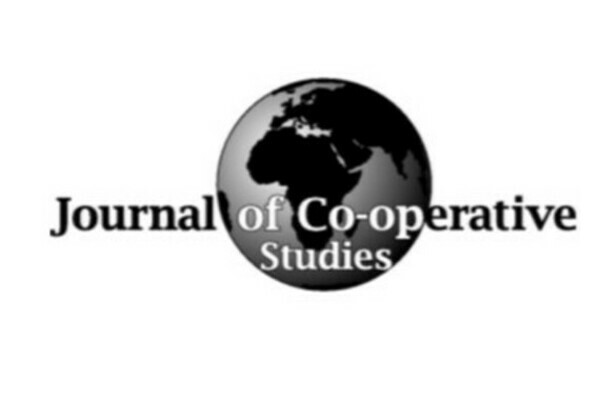Guest Editorial
Olive McCarthy and Donal McKillop, p. 3
This special Irish edition of the Journal of Co-operative Studies comes at a time when the Irish co-operative movement is both celebrating and going through a process of renewal.
Refereed articles
The Potential of the Co-operative Form for Farmers’ Markets in Ireland – Some Lessons for the USA and UK
Aisling Moroney, Robert Briscoe, Olive McCarthy, Mary O’Shaughnessy and Michael Ward, pp. 4-12
One of the most important developments in small-scale agriculture and in local food retailing in the last decade has been the emergence of a new generation of farmers’ markets in countries such as Ireland, the USA, the UK, New Zealand and Australia. Farmers’ markets are now a significant alternative source of sales, distribution and marketing for many small scale producers and a valuable source of fresh, local and specialist produce for growing numbers of consumers. This paper presents findings from the initial stages of a large-scale study1 which seeks to establish how farmers’ markets in Ireland can best be structured and organised to increase the competitiveness and sustainability of small farmers and to strengthen farmer influence and control in the marketplace. The research is particularly concerned with examining the potential of formal co-operative structures, which though relatively common in farmers’ markets in the US and the UK, remain largely unexplored in an Irish context. While ongoing extensive quantitative and qualitative research on all Irish farmers’ markets is the primary focus of the research, field visits to markets and key informants in the US and UK have also been conducted and completed. The findings from the latter research – and more specifically, their potential relevance to Irish farmers’ markets at their current stage of development – are the subject of this paper.
Food Democracy in Practice: a case study of the Dublin Food Co-op
Aisling Murtagh and Michael Ward, pp. 13-22
Today’s food co-operatives are faced with finding solutions for more difficult problems because of the length and complexity of food supply chains. This consequently means effective solutions are more challenging to develop, which the Dublin Food Co-op case highlights. The case also shows that even when co-operation exists in the food supply chain; it could be improved upon by involving a greater range of stakeholders, to move towards the ideal of a fully democratic and participatory method of food supply. However, in the Irish case, examples of consumer co-operation in food supply are isolated, so rather than aiming for the ideal of a perfect participatory food supply system, it could be more valuable to first mobilise and facilitate the development of more organisations with this alternative, more equitable approach so as to begin to challenge the conventional retailer who currently dominates Ireland’s food retailing.
Cost Performance of Irish Credit Unions
Donal G McKillop and Barry Quinn, pp. 23-36
There are 424 credit unions in Ireland with assets under their control of €14.3bn and a membership of 2.5m which equates to about 66% of the economically active population, the highest penetration level of any country. That said, the Irish movement sits at a critical development stage, well behind mature markets such as Canada and the US in terms of product provision, technological sophistication, fragmentation of trade bodies and regulatory environment. This study analyses relative cost efficiency or performance of Irish credit unions using the popular frontier approach which measures an entity’s efficiency relative to a frontier of best practice. Parametric techniques are utilised, with variation in inefficiency being attributed to credit union-specific factors. The stochastic cost frontier parameters and the credit-union specific parameters are simultaneously estimated to produce valid statistical inferences. The study finds that the majority of Irish credit unions are not operating at optimal levels. It further highlights the factors which drive efficiency variation across credit unions and they include technological sophistication, ‘sponsor donated’ resources, interest rate differentials and the levels of bad debt written off.
Fostering Co-operative Growth through Law Reform in Ireland: three recommendations from legislation in the United States, Norway and Brussels
Edward W De Barbieri, pp. 37-46
This paper provides a review of several principles incorporated into new co-operative laws that have provided opportunities for growth in the co-operative movement. It adds to the discussion about how law reform should occur in Ireland regarding co-operative enterprise. Three main recommendations, key to this discussion, are discussed and offered pursuant to the current governmental review of the laws governing Irish co-operatives.
Short articles
Co-operative identity – Do you need a law about it?
Eamonn Carey, pp. 49-50
A long promised overhaul of legislation relating to co-operative societies in Ireland provides an opportunity to reflect on the role of public legislation in the world of co-operatives. Central to this is the question whether the co-operative form of organisation requires or needs express legislative recognition and provision. Should public legislation clearly demarcate co-operatives from other types of entity? Do we need a law to tell us what a co-operative is? Or should this be left to co-operatives themselves, their representative bodies and the international co-operative movement?
The Centre for Co-operative Studies in Co-operative Education and Research
Olive McCarthy, pp. 51-53
The Centre for Co-operative Studies is a university research centre which promotes education, training, independent research and consultancy in all aspects of co-operative organisation, social enterprise and local development. It is the only third level centre or department in Ireland focusing on co-operatives. Co-operative research and education in the Centre aims to have both an academic and practical relevance. It takes an interdisciplinary, problem-centred approach and is conducted with a multi-disciplinary perspective, focusing on the practical solution of key problems in the real world. This paper examines the role of the Centre in co-operative education and research and explores the impact this has had on the co-operative movement.
Book reviews
Credit Unions in Ireland: structure, performance and governance. By Donal McKillop, Peter Goth and Noel Hyndman.
Reviewed by Padraig O Cearbhaill, pp. 54-55
Helping Ourselves: success stories in co-operative business and enterprise. Edited by Robert Briscoe and Michael Ward.
Reviewed by Molly Scott Cato, pp. 55-56










